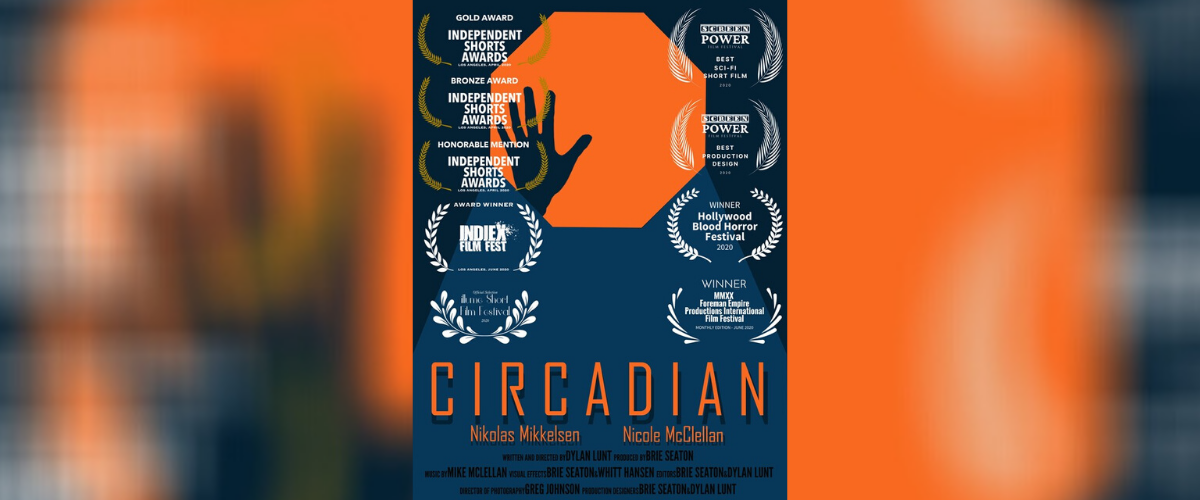
Most great sci-fi movies do not necessarily talk about the technological progress of a potential future, but about the depths of human nature. More precisely, the futuristic convention conferred by this cinematic genre outlines for some directors the ideal environment to allow a more refined access to our personality data. ‘Circadian‘ ticks, from this point of view, the requirements of an intelligent sci-fi that is not limited only to a scenery inspired by Asimov’s writings. Dylan Lunt approaches the premises of a cosmic journey, but his project is not just an opportunity to display a specific image arsenal. On the contrary, the details that make up this futuristic fictional universe are a pretext through which the director plunges into the hot core of the protagonist’s identity, brutally revealing monstrous emotional mechanisms that unconsciously govern our existence. Thus, the main character of this short film struggles between two deceptive realities – the immaterial reality of the “terrestrial” memory and the acute reality of the present when the protagonist has a painful revelation.
As the title suggests, the stake of the project is to tackle a human-specific subtle mechanism which, in order to provide the human being a better adaptability to environmental changes, creates a kind of cyclicity that respects the day-night alternation. Likewise, the protagonist confronts a sort of Jekyll/Hyde “syndrome” corresponding to his emotional diurnal/nocturnal metamorphoses, while witnessing the consequences of an unconscious act that, for a moment, made him cross the border of madness.






